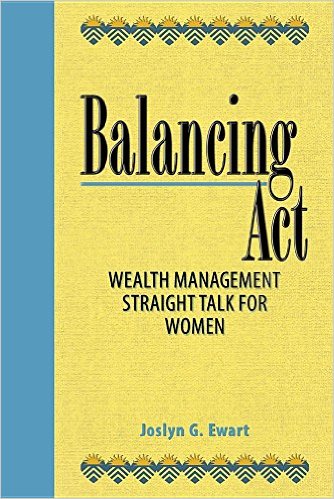“Money personality” is the term often used to designate your subliminal instincts or unconscious perspectives about money. Each of us has one. And our money personality often triggers our most natural responses to any financial choice facing us. For couples, the money personality of one spouse is often the direct opposite of the money personality of the other. No wonder financial clashes destroy more marriages than sexual incompatibilities.
I have found it useful to identify money personalities in the most straightforward manner. Therefore, I have identified the following four types to provide the descriptive framework for the ensuing discussion:
• Spender: “I’m almost ready to save. I just need to take care of this one thing…”
• Saver: Enjoys the feeling of having money “put away.” Already knows what she needs for a secure retirement; is on track.
• Worrier: Thinks and talks continuously about money; frequently comments on how much things cost. May obsess about and check her investments online daily.
• Avoider: Ignores financial matters, hoping everything will turn out alright.
Ascertain Your Current Status Title
I suppose as you read through the descriptive list you immediately recognized your own money personality. But in case you are trying to select the “best” one, I am happy to remind you this is not a test. There is no good or bad money personality. Your money personality is simply a characteristic—like hair color. And just as you can change your hair color, you can modify your instinctive reactions and responses to money matters. But you will need to be cognizant of tendencies.
For example, I epitomize the spender money personality. Many people assume that because I am a financial advisor, the only interest I have is saving money. In my case, that is not true. I love spending money. I love the perks money can buy. How delicious it is to think that when I
want to go to a specific performance at the Metropolitan Opera in New York City, I can simply pick up the phone and purchase choice seats, without having to worry that because I made a luxurious purchase some other bill won’t get paid.
That being said, I also recognize the value of saving. As I reported in the introduction, I started saving for the future in my early twenties because a number of events helped me get started. First and foremost, I was inclined to think about the future. I had no desire to be poor like I was growing up. Finally, it never occurred to me to expect wealthy Prince Charming to miraculously appear and take care of me.
Spenders are distinguished by actively thinking about the next thing they want to buy. Their instincts are in direct opposition to the saver personality, who is energized by building up her savings and by spending as little as possible. It can be difficult for a spender to set limits and equally difficult for a saver to enjoy her money. Specifically because savers find it difficult to enjoy spending, I have known them to deprive themselves of salon services when they need to cut, dye, and perm their hair. Because they experience these services as expensive, they resort to do-it-yourself measures. The most extreme savers I have encountered were a Massachusetts couple who kept the heat in their home at 55º all winter long. Paying for fuel to stay warmwas too expensive in their view. Yet, this couple’s net worth exceeded $12 million.
Now, let us examine the characteristics of the worrier. I describe my mother as a worrier. It may come as a surprise to learn worriers do not routinely make informed decisions about their money, despite all that worrying; nor do they necessarily save to alleviate their worry. They simply worry all the time. Money is always on their minds. Just for fun, when I was eight years old, I spent an hour counting the number of times my mother mentioned money—e.g., not having enough money, being out of money, thinking everything cost more than she could afford, and so forth. I discovered during that hour she mentioned money at least once every minute. How I wished I could stop all her worrying. Of course, only she could make that happen.
Finally, money avoiders are people who would be happy if money just disappeared from the earth. They are not interested in thinking about money, talking about it, or planning for it. For example, they often tip their hand to their financial advisor in the following manner: money avoiders schedule a meeting, reschedule a few days later when something comes up, reschedule a second time when another conflict surfaces. Finally, on the third try they reschedule their appointment and manage to keep the date.
Do not be surprised to discover characteristics of more than one money personality in yourself. But whether you discover them or not, before making financial decisions—especially major ones—identify the instincts motivating your course of action. This extra degree of thoughtfulness in all likelihood will enable you to make informed decisions.
Joslyn G. Ewart is Founding Principal of Entrust Financial LLC®. Her deepest passion is to help others make the right choices at pivotal times in their lives, thereby easing financial concerns. This passion also inspired her to write Balancing Act: Wealth Management Straight Talk for Women(August 2016). Ewart earned her Bachelor of Science degree from Case Western Reserve University, her Master’s from Temple University and Principal’s Certifications from University of Pennsylvania. She has attained the Certified Divorce Financial Analyst™ (CDFA™) and CERTIFIED FINANCIAL PLANNER™ (CFP®) professional certifications.
is available for purchase on Amazon and other booksellers. Learn more at BalancingActBook.com and connect via Facebook, LinkedIn and Twi


